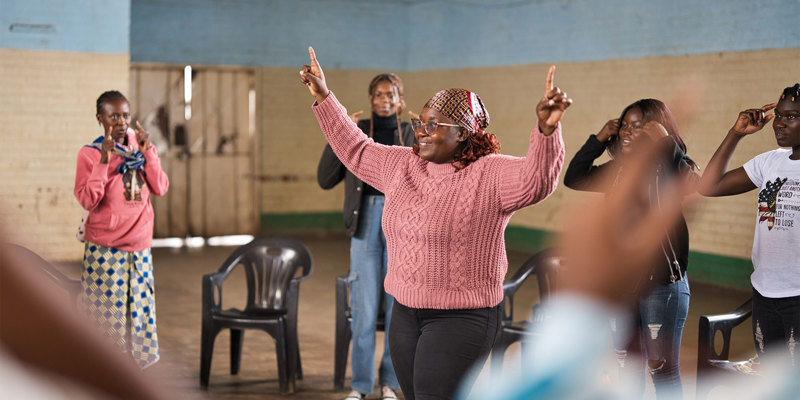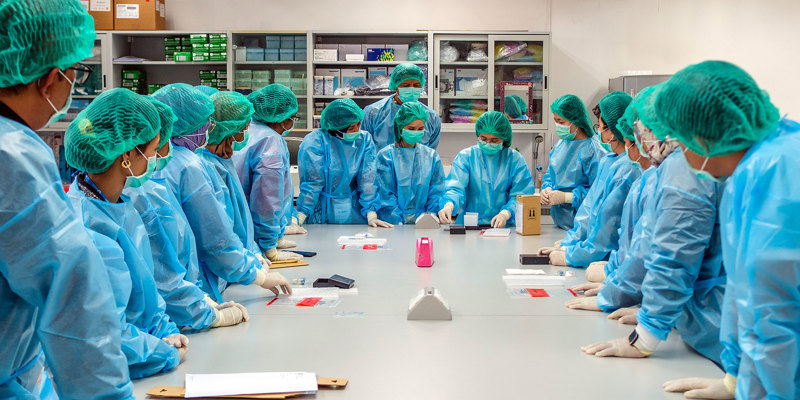Global Fund to Provide Emergency Services to 1.3 Million Afghan Returnees
22 February 2024
GENEVA/KABUL – The Global Fund to Fight AIDS, Tuberculosis and Malaria (the Global Fund) has approved over US$4.7 million in emergency funding to deliver HIV, tuberculosis (TB) and malaria services to the 1.3 million Afghans who have been living in Pakistan who must now return to their country in the coming year.
The US$4.7 million in emergency funds will be added to a US$66 million grant that started on 1 January 2024 for a period of three years. The grant is implemented by the United Nations Development Programme (UNDP).
“The anticipated 1.3 million people represent over 3% of Afghanistan’s population,” said Annelise Hirschmann, Head of the Asia, Eastern Europe, Latin America & the Caribbean Department at the Global Fund. “This steep increase in population, especially in the rural and hard-to-reach areas bordering Pakistan, represents an epidemiological risk and cannot be accommodated without reinforcing essential HIV, TB and malaria services.”
The emergency funds will be used as follows:
- Malaria: Diagnostics, provision of long-lasting insecticidal nets (LLINs) for people who settle in areas where malaria prevalence is high, and refresher training sessions for people living in low-risk provinces to avoid the spread of malaria from people arriving from high-risk areas in Pakistan.
- TB: Establishment of point-of-care facilities at the border with testing equipment, expansion of active case finding, integrated sample transportation, prevention, and treatment.
- HIV: Voluntary testing at the border entry points, counseling, and continued treatment for displaced people.
“We already have systems in place to address the immediate needs of the returnees who are at increased risk of HIV, TB and malaria,” said Stephen Rodriques, Resident Representative of UNDP Afghanistan. “With this emergency funding from the Global Fund, we can help further minimize health risks to the returnees, who are already in a precarious situation. We welcome this decision and look forward to a continued partnership with the Global Fund.”
Malaria
The returnees from Pakistan are at risk of malaria and dengue because they are coming from malaria-endemic areas in Pakistan. The border areas between the two countries are also considered high-risk for malaria and other vector-borne diseases.
It is estimated that 390,000 returnees will settle in provinces at high-risk for malaria (Nangarhar and Laghman), and 910,000 will settle in provinces considered low-risk for malaria (Kabul, Kandahar, Kunduz and others).
The main malaria interventions will include the distribution of 216,700 LLINs through mass campaigns, 19,500 LLINs through continuous distribution for pregnant women in antenatal care, indoor residual spraying in the low- and high-risk provinces for the control of malaria outbreaks, and the provision of diagnostics.
HIV
A Global Fund-supported mobile clinic will provide key interventions including information and awareness of HIV and other sexually transmitted infections (STIs) at the Torkham and Spinboldak border crossing sites, as well as counseling for people living with HIV and people who use drugs. The mobile clinic will also provide voluntary testing for HIV and other STIs, and the provision of antiretroviral drugs to people living with HIV and linkages to the antiretroviral therapy (ART) sites in the provinces.
TB
Approximately 10,400 cases of TB are expected among the returnee population upon their arrival. In addition, the living conditions of the returnees are such that they may be at risk of developing TB once in Afghanistan. The Global Fund’s investment through this emergency funding will focus on mitigating immediate impacts from the influx of returnees by providing early screening, diagnosis, treatment and linkages to care at or near the border crossing areas and in informal returnee settlements. For those who are already integrated in the communities away from the border areas, most TB prevention, diagnostic and treatment services will be provided through the regular surveillance system and contact-tracing activities.
The establishment of point-of-care facilities at the border crossings with Pakistan, including chest camps equipped with GeneXpert machines and portable X-rays using artificial intelligence, and the expansion of active case finding within the informal settlements in Afghanistan, will go towards addressing TB prevention and treatment needs. Other activities include the provision of gender-responsive interventions with training on TB signs and symptoms to improve awareness and access to TB services, providing first-line TB treatment and introducing a digital adherence tool to support TB patients on treatment.
Since the Taliban’s takeover in 2021, the Global Fund has allocated over US$150 million to fight HIV, TB, malaria, build resilient and sustainable systems for health, and respond to COVID-19 in Afghanistan. Within Afghanistan’s highly challenging operating environment, our grants, implemented through UNDP, support interventions designed to protect hard-won gains against the three diseases, foster continued progress and strengthen the country’s fractured health system.







